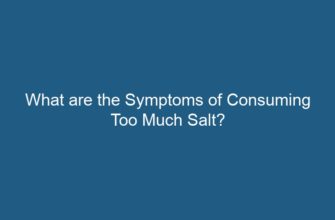Alanine aminotransferase (ALT) is an enzyme found primarily in the liver. Elevated levels of ALT in the blood can indicate damage or disease in the liver. There are several factors that can cause an increase in ALT levels, ranging from liver diseases to certain medications or lifestyle choices. In this article, we will explore the various causes of elevated ALT and delve into each subtopic in detail.
- 1. Liver Diseases
- 2. Medications and Substances
- Doctor explains ALT (alanine aminotransferase) blood test | Liver Function Tests (LFTs) explained!
- Diagnosis of Key Liver Diseases – Hepatitis A, B, C vs. Alcoholic vs. Ischemic (AST vs ALT Labs)
- 3. Infections and Viruses
- 4. Metabolic and Genetic Disorders
- 5. Lifestyle Factors
- FAQs
- 1. Can medications cause a temporary increase in ALT levels?
- 2. Can stress or anxiety cause elevated ALT levels?
- 3. Are there any natural remedies to lower ALT levels?
- 4. How is elevated ALT diagnosed?
- 5. Can exercise help lower ALT levels?
- 6. Can ALT levels be elevated without any symptoms?
- 7. Can ALT levels fluctuate throughout the day?
- 8. Can herbal supplements cause liver damage?
- 9. How long does it take for ALT levels to return to normal?
- 10. Can elevated ALT levels be a sign of liver cancer?
- Conclusion
1. Liver Diseases
Liver diseases play a significant role in elevating ALT levels. There are several liver conditions that can cause liver damage and subsequently increase ALT levels. Some common liver diseases include:
- Hepatitis: Inflammation of the liver, which can be caused by viruses (hepatitis A, B, C, etc.) or other factors such as alcohol abuse or drug toxicity.
- Nonalcoholic fatty liver disease (NAFLD): Accumulation of fat in the liver, often associated with obesity, diabetes, or high cholesterol levels.
- Alcoholic liver disease: Liver damage caused by excessive alcohol consumption.
- Cirrhosis: Scarring of the liver tissue, usually a result of long-term liver damage from various causes.
2. Medications and Substances
Certain medications or substances can also lead to elevated ALT levels. These include:
- Statins: Cholesterol-lowering medications like atorvastatin or simvastatin can occasionally cause liver inflammation, leading to increased ALT levels.
- Acetaminophen (paracetamol): High doses of this common pain reliever can cause liver damage and elevate ALT levels.
- Herbal supplements: Some herbal supplements, such as kava or comfrey, have been linked to liver damage and increased ALT levels.
- Illicit drugs: Certain recreational drugs, such as cocaine or ecstasy, can be hepatotoxic and contribute to elevated ALT levels.
Doctor explains ALT (alanine aminotransferase) blood test | Liver Function Tests (LFTs) explained!
Diagnosis of Key Liver Diseases – Hepatitis A, B, C vs. Alcoholic vs. Ischemic (AST vs ALT Labs)
3. Infections and Viruses
Various infections and viral diseases can cause liver inflammation and subsequently raise ALT levels. These include:
- Hepatitis viruses: Hepatitis A, B, C, D, and E can all cause liver inflammation and elevate ALT levels.
- Epstein-Barr virus: This common virus can cause infectious mononucleosis, which can result in liver inflammation and increased ALT levels.
- Cytomegalovirus: A widespread virus that can cause liver inflammation, particularly in individuals with weakened immune systems.
- Other infections: Certain bacterial, fungal, or parasitic infections can affect the liver and lead to elevated ALT levels.
4. Metabolic and Genetic Disorders
Some metabolic and genetic disorders can also contribute to elevated ALT levels. These include:
- Wilson’s disease: A rare genetic disorder that causes copper buildup in the liver, leading to liver damage and increased ALT levels.
- Hemochromatosis: Excessive iron accumulation in the liver, which can result in liver inflammation and elevated ALT levels.
- Alpha-1 antitrypsin deficiency: A genetic disorder that can cause liver damage and increase ALT levels.
- Autoimmune hepatitis: An autoimmune disease where the body’s immune system mistakenly attacks the liver, leading to liver inflammation and elevated ALT levels.
5. Lifestyle Factors
Certain lifestyle choices can contribute to elevated ALT levels. These include:
- Alcohol consumption: Excessive alcohol intake can lead to alcoholic liver disease and raise ALT levels.
- Obesity: Being overweight or obese can contribute to fatty liver disease, which can increase ALT levels.
- Poor diet: A diet high in unhealthy fats and sugars can contribute to liver damage and elevated ALT levels.
- Sedentary lifestyle: Lack of physical activity can contribute to obesity and fatty liver disease, thereby raising ALT levels.
FAQs
1. Can medications cause a temporary increase in ALT levels?
Yes, certain medications can cause a transient elevation in ALT levels. However, if the elevation persists or worsens, it is essential to consult a healthcare professional.
2. Can stress or anxiety cause elevated ALT levels?
Stress and anxiety alone do not typically cause elevated ALT levels. However, chronic stress or anxiety may indirectly contribute to unhealthy lifestyle choices, such as excessive alcohol consumption or poor diet, which can raise ALT levels.
3. Are there any natural remedies to lower ALT levels?
While certain natural remedies may have hepatoprotective properties, it is crucial to consult a healthcare professional before using them. They should be used as complementary therapies alongside medical treatment, not as a replacement.
4. How is elevated ALT diagnosed?
Elevated ALT levels are usually detected through a routine blood test called a liver function test (LFT). If ALT levels are elevated, further investigations may be required to determine the underlying cause.
5. Can exercise help lower ALT levels?
Regular exercise and physical activity can contribute to overall liver health and may help lower ALT levels, particularly in cases of fatty liver disease. However, it is essential to consult a healthcare professional before starting any exercise regimen.
6. Can ALT levels be elevated without any symptoms?
Yes, it is possible for ALT levels to be elevated without any noticeable symptoms. Regular blood tests are necessary to detect elevated ALT levels and identify the underlying cause.
7. Can ALT levels fluctuate throughout the day?
ALT levels can vary throughout the day, but significant fluctuations are not common. If ALT levels are consistently elevated, further evaluation is required to determine the cause.
8. Can herbal supplements cause liver damage?
While most herbal supplements are generally safe when used appropriately, certain herbal supplements have been associated with liver damage. It is crucial to research and consult a healthcare professional before taking any herbal supplements.
9. How long does it take for ALT levels to return to normal?
The time it takes for ALT levels to return to normal depends on the underlying cause. In some cases, ALT levels may normalize within a few weeks or months with appropriate treatment. However, it can take longer for chronic liver conditions to improve.
10. Can elevated ALT levels be a sign of liver cancer?
Elevated ALT levels alone are not specific to liver cancer. However, persistent elevation or a significant increase in ALT levels may warrant further investigation to rule out liver cancer or other serious liver conditions.
Conclusion
Elevated ALT levels can be caused by various factors, including liver diseases, medications, infections, metabolic disorders, and lifestyle choices. It is crucial to identify the underlying cause of elevated ALT levels through proper medical evaluation. Lifestyle modifications, medical treatment, and addressing the underlying cause are essential for managing and reducing elevated ALT levels. Regular monitoring and consultation with healthcare professionals are necessary for individuals with elevated ALT levels to ensure appropriate management and prevention of liver damage.










